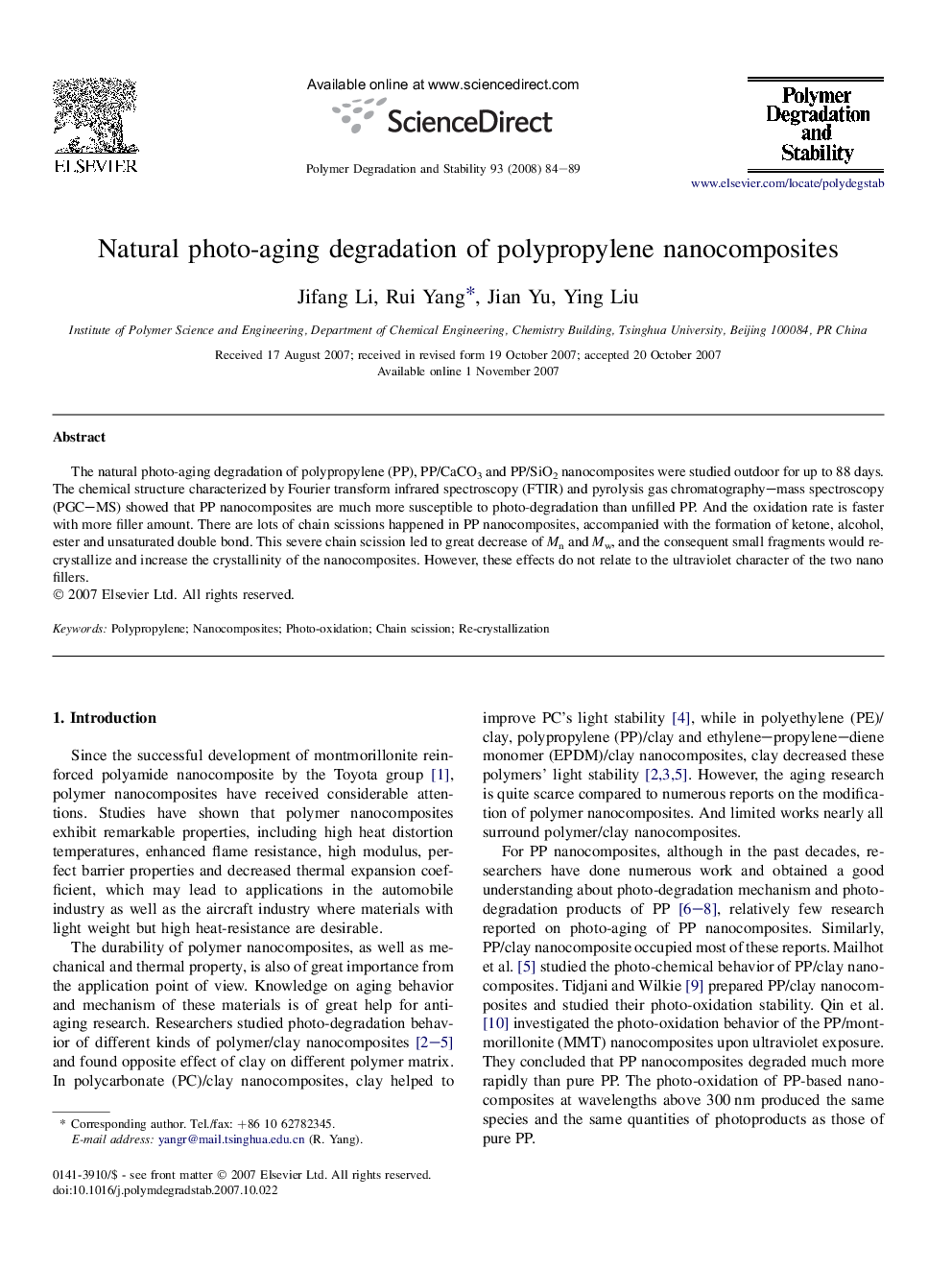| Article ID | Journal | Published Year | Pages | File Type |
|---|---|---|---|---|
| 5204642 | Polymer Degradation and Stability | 2008 | 6 Pages |
Abstract
The natural photo-aging degradation of polypropylene (PP), PP/CaCO3 and PP/SiO2 nanocomposites were studied outdoor for up to 88 days. The chemical structure characterized by Fourier transform infrared spectroscopy (FTIR) and pyrolysis gas chromatography-mass spectroscopy (PGC-MS) showed that PP nanocomposites are much more susceptible to photo-degradation than unfilled PP. And the oxidation rate is faster with more filler amount. There are lots of chain scissions happened in PP nanocomposites, accompanied with the formation of ketone, alcohol, ester and unsaturated double bond. This severe chain scission led to great decrease of Mn and Mw, and the consequent small fragments would re-crystallize and increase the crystallinity of the nanocomposites. However, these effects do not relate to the ultraviolet character of the two nano fillers.
Related Topics
Physical Sciences and Engineering
Chemistry
Organic Chemistry
Authors
Jifang Li, Rui Yang, Jian Yu, Ying Liu,
